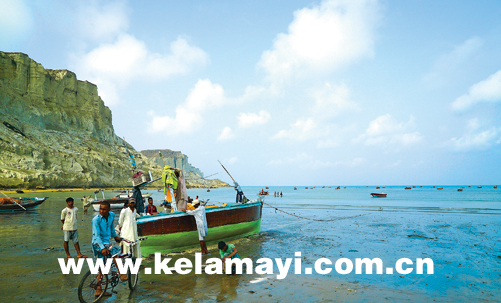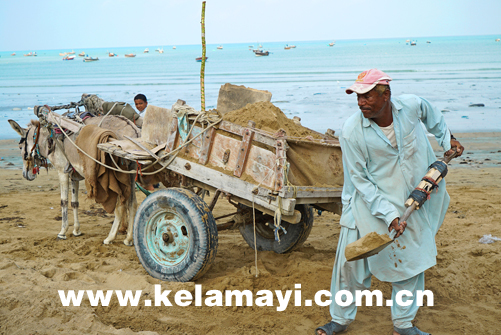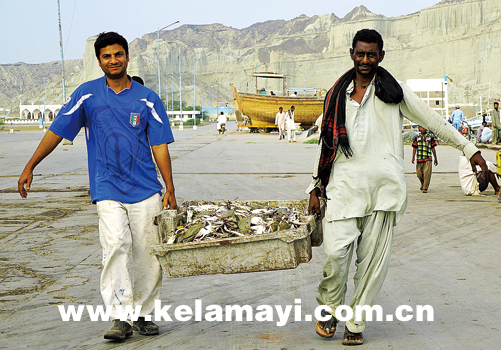

By Wang Yifei and Luo Feifei Updated: 2016-05-13
Karamay is a pilot city that is transitioning from a resource-based city relying on petroleum and the petrochemical industry to a city with a more comprehensive economy.
Gwadar, which means "gate of wind" in the Urdu language, may, like Karamay, be facing signficant development and changes in the future. Since antiquity, Gwadar has been like a skinny and thirsty camel. It has 85,000 people, 65 percent of whom make a living by fishing in small boats less than 10 meters long. They have done so for generations.
But Gwadar is perhaps destined to be an unyielding man. Located in a strategic position on the Persian Gulf, Gwadar is an obligatory stop along the trunk routes which connect the European, African and East Asia-Pacific regions.
More importantly, it is less than 400 kilometers from the Hormuz Strait, the main global channel for petroleum transporting 40 percent of global petroleum production.
In 2015, China's dependence on external crude oil reached 60 percent, more than half of which was transported through the Hormuz Strait.
Significantly, Gwadar is a warm deep-water port with a depth of 15 meters.
Gwadar is a focal point of the international economy and the transportation of most important global energy resources. Based on the above advantages, many Pakistan economists consider that it is highly credible that Gwadar will become a modern and international costal city in the future.
 |
|
The main means of livlihood in Gwadar, a village in Pakistan, is fishing. [Photo provided to chinadaily.com.cn] |
 |
|
Donkeys are the main vehicles and instruments of production for the local residents in Gwadar. [Photo provided to chinadaily.com.cn] |
 |
|
Kind-hearted and hard-working fishermen smile to show their hospitality. [Photo provided to chinadaily.com.cn] |
Edited by Peter Nordlinger